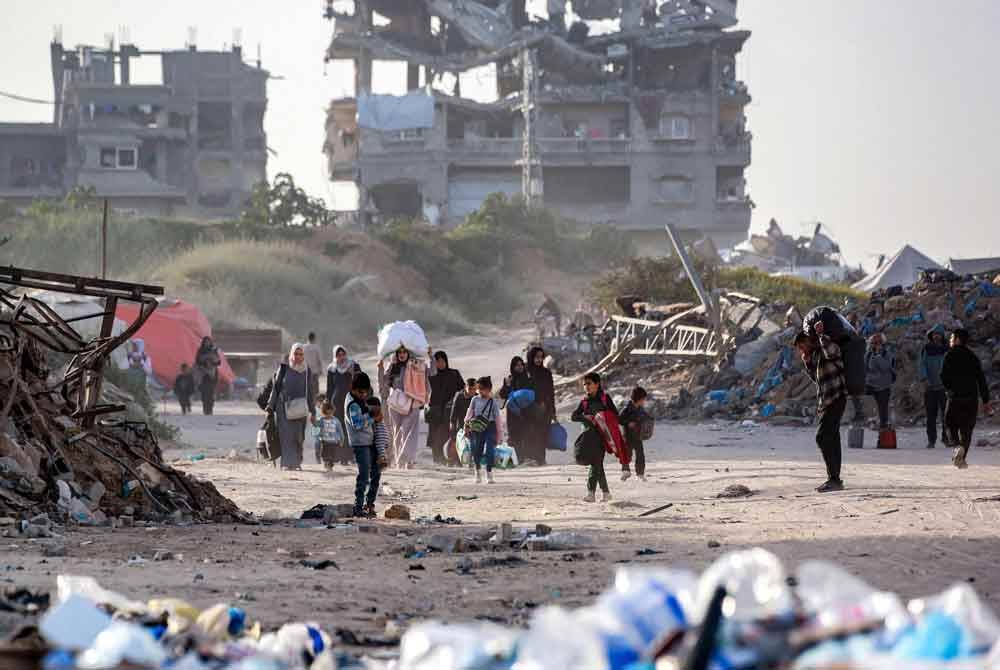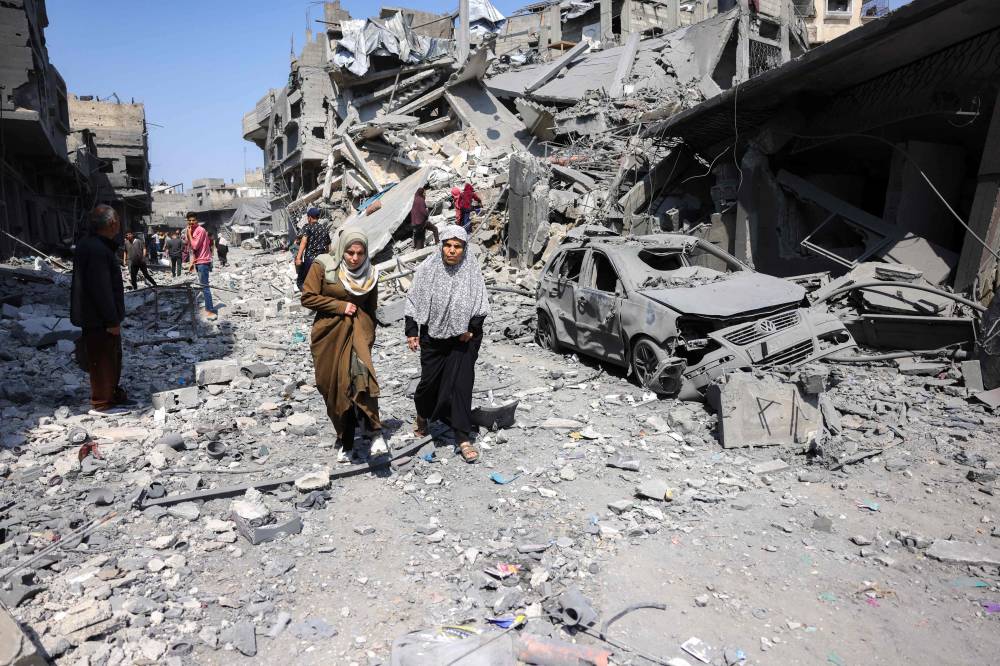How Israel sabotaged the Gaza ceasefire to prolong its genocide
The original ceasefire deal, which began on Jan 15, included a phased agreement for prisoner exchanges and troop withdrawals, but Israel’s blockade of humanitarian aid and refusal to negotiate the next phase led to its breakdown.

SHAH ALAM - The latest collapse of the ceasefire in Gaza was not due to Hamas refusing to release hostages, but rather Israel’s decision to resume bombing the region.
The original ceasefire deal, which began on Jan 15, included a phased agreement for prisoner exchanges and troop withdrawals, but Israel’s blockade of humanitarian aid and refusal to negotiate the next phase led to its breakdown.
This raises questions about Israel’s Prime Minister Benjamin Netanyahu’s political motivations and the Israeli right-wing’s long-term ambitions for Gaza.
How the ceasefire was supposed to work
The ceasefire agreement between Israel and Hamas, signed on Jan 15, was designed to unfold in three phases.
The first phase saw both sides exchanging prisoners in groups, while Israel was expected to withdraw its troops from Gaza and allow humanitarian aid into the region.
"This phase was completed successfully and it was supposed to lead to negotiations for the second phase, which included more prisoner swaps and discussions on permanently ending the war.
"However, rather than proceeding with phase two, Israel imposed a full blockade on Gaza, cutting off humanitarian aid and refusing to begin negotiations.
"In response, Hamas stated that it would not release additional hostages, not because it was unwilling to negotiate, but because Israel had failed to uphold its end of the agreement," international media reported.
Despite this, Israel accused Hamas of breaking the deal and launched a massive bombardment across Gaza, killing 400 people overnight.
Netanyahu’s political motives for continuing the war
Israel’s actions following the breakdown of the ceasefire have led many to question whether Netanyahu is deliberately sabotaging peace efforts. His political survival is closely tied to maintaining the war, as his coalition government is made up of far-right parties that oppose any ceasefire.
These parties see an end to the war as a sign of weakness and have threatened to withdraw from Netanyahu’s government if he agrees to stop the fighting.
It was reported that if Netanyahu loses the support of his far-right allies, his government could collapse, potentially leading to new elections where he would likely be removed from power.
Multiple reports from individuals involved in the ceasefire negotiations have accused Netanyahu of intentionally obstructing the peace talks to protect his position.
"At the same time, polling suggests that most Israelis actually support continued engagement in the ceasefire negotiations, not necessarily out of concern for Palestinians but because they want to secure the release of hostages held by Hamas," international media reported.
However, Netanyahu appears to prioritise his own political survival over the wishes of the majority of Israeli citizens.

The Israeli right’s plan for Gaza: Ethnic cleansing and settlements
Beyond Netanyahu’s personal motivations, Israel’s right-wing has a long-term vision for Gaza that hinges on keeping the war going. For years, Israeli politicians—including members of Netanyahu’s own party—have openly spoken about settling the entire Gaza Strip with Israelis.
There have already been conferences in Israel discussing the logistics of building new settlements in Gaza and the idea is frequently debated in the Israeli parliament and media.
"The goal is not to establish a few isolated settlements but to completely replace the Palestinian population and integrate Gaza into Israel.
"This fits into a broader ideological vision known as the "Greater Israel" project, which is based on an extreme interpretation of Jewish scripture that claims Israel should expand from Egypt to modern-day Iraq," international media reported.
United States (US) President Donald Trump’s recent comments have emboldened Israeli leaders, as he has openly suggested relocating the Palestinian population of Gaza to other countries.
His support is seen as a green light for Israel to pursue ethnic cleansing without international consequences. However, a permanent ceasefire would prevent Israel from achieving this objective, which is why the right-wing leadership wants the war on Gaza to continue.
The role of US and shifting public opinion
Israel’s ability to continue its military operations in Gaza depends heavily on US financial, military and diplomatic support. Historically, Washington has been Israel’s most reliable ally, shielding it from international criticism and providing billions in military aid.
However, it was reported that recent polling shows that American public sympathy for Israel has dropped to its lowest level in 24 years.
This shift in public opinion poses a serious threat to Israel’s long-term strategy, as it could eventually pressure US politicians to reconsider their unwavering support.
As a result, pro-Israel lobby groups and figures like Trump are working aggressively to silence the growing movement in support of Palestine, reports have stated.
They recognise that without US backing, Israel’s military campaign in Gaza would become far more difficult to sustain.
War as a political and strategic tool
The collapse of the Gaza ceasefire was not the result of Hamas refusing to negotiate—it was Israel’s deliberate decision to block humanitarian aid and refuse to move to phase two of the agreement.
Netanyahu’s political survival depends on keeping the war going, while the Israeli right sees Gaza’s destruction as an opportunity for expansion.
Download Sinar Daily application.Click Here!















